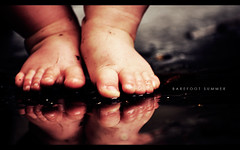The gates of knowledge are open to the Muslim woman, and she may enter whichever of them she
chooses, so long as this does not go against her feminine nature, but develops her mind and enhances her
emotional growth and maturity. We find that history is full of prominent examples of remarkable women
who sought knowledge and became highly proficient.
Foremost among them is the Mother of the Believers `A'ishah (May Allah be pleased with her), who was the primary source of hadith and knowledge of the sunnah, and was the first faqihah in Islam when
she was still a young woman no more than nineyears of age.
Imam al-Zuhri said: "If the knowledge of `A'ishah were to be gathered up and compared to the
knowledge of all the other wives of the Prophet (PBUH) and all other women, `A'ishah's knowledge
would be greater."
Her knowledge and deep understanding were not restricted only to matters of religion; she was equally
distinguished in poetry, literature, history and medicine, and other branches of knowledge that were
known at that time. The faqih of the Muslims, `Urwah ibn al-Zubayr, was quoted by his son Hisham as
saying: "I have never seen anybody more knowledgeable in fiqh or medicine or poetry than `A'ishah."
`A'ishah (May Allah be pleased with her) had a curious mind and was always eager to learn.
Whenever she heard about something she did not know, she would ask about it until she
understood it. Her closeness to the Messenger of Allah (PBUH) meant that she was like a vessel
full of knowledge.
Imam Bukhari reports from Abu Mulaykah that `A'ishah, the wife of the Prophet (PBUH) never
heard anything that she did not know, but she would keep going over it until she understood it.
The Prophet (PBUH) said, "Whoever is brought to account will be punished." `A'ishah said: "I
said, `But does Allah (SWT) not say ( `Soon his account will be taken by an easy reckoning')
(Qur'an 84:8)" He said, "That refers to al-`ard (when everyone is brought before Allah (SWT) on
the Day of Judgement); but whoever is examined in detail is doomed."
In addition to her great knowledge, `A'ishah (May Allah be pleased with her) was also very eloquent in
her speech. When she spoke, she captured the attention of her audience and moved them deeply. This is
what made al-Ahnaf ibn Qays say:
"I heard the speeches of Abu Bakr, `Umar, `Uthman, `Ali and the khulafa' who came after them, but I
never heard any speech more eloquent and beautiful than that of `A'ishah."
Musa ibn Talhah said: "I never saw anyone more eloquent and pure in speech than `A'ishah."
`A'ishah, the other wives of the Prophet (PBUH), the daughter of Sa`id ibn al-Musayyab, Fatimah al-
Samarqandi and other famous women scholars were not something unique or rare among Muslim
women. There were innumerable learned women, who studied every branch of knowledge and became
prominent in many fields.
The modern Muslim woman, looking at the magnificent heritage of women in Islamic history, is filled
with the desire for knowledge, as these prominent women only became famous and renowned
throughout history by virtue of their knowledge. Their minds can only be developed, and their characters
can only grow in wisdom, maturity and insight, through the acquisition of useful, beneficial and correct
knowledge.





 Asalamu Alaykum
Asalamu Alaykum

















 Grapefruit
Grapefruit
 Unlike many others,calories in coconut oil act more like carbohydrates, being burned by the liver for immediate energy.
Unlike many others,calories in coconut oil act more like carbohydrates, being burned by the liver for immediate energy.










